7 Groundbreaking Surgeries Performed In Ghana
Since its first historic open-heart surgery in 1964, Ghana’s surgical field has recorded many groundbreaking firsts.
Thirty-eight years ago, in 1985, the first black man, Ghana’s Professor Kwabena Frimpong-Boateng, performed a heart transplant in Germany.
At the time, he was recognised worldwide as the first black person to have performed a heart transplant.
It is 2023, and Ghanaian doctors at home are recording many successes with first-of-a-kind surgeries, despite the challenges.
Ghana’s medical field has recently been in the news with more surgical feats by brave doctors using modern technology and innovation to make the impossible possible.
From congenital limb defect repairs to separating conjoined twins, The Ghana Report takes a look at some of these remarkable surgeries over the years.
- Ghana’s First Open Heart Surgery
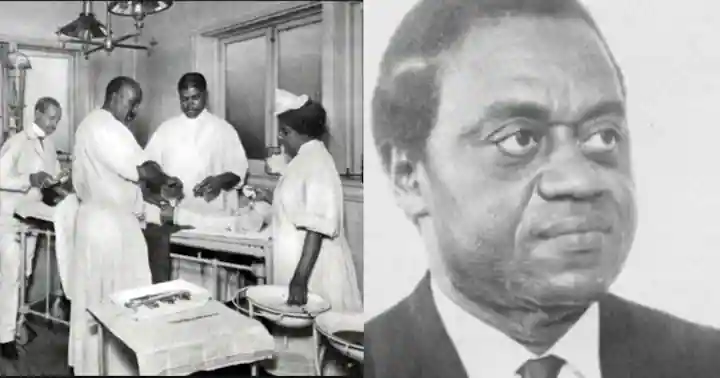
A Ghanaian doctor known as Charles Odamtten Easmon made his way into the history books of Ghana after performing the first successful open-heart surgery in Ghana in 1964 at the Korle-Bu Teaching Hospital in Accra.
The procedure was done using surface cooling to achieve hypothermia. The doctors used this approach to successfully close an atrial septal defect (ASD) in the patient.
This feat led modern scholars to credit Dr Easmon as the “Father of Cardiac Surgery in West Africa”.
- First conjoined twins separated in Ghana
Dr Winfred Mensah Hodasi led a team of doctors in 1999 to successfully separate conjoined twins at the Korle Bu Teaching Hospital in Accra in a six-hour groundbreaking surgery.
The twins were joined from the lower portion of their chest and abdomen and shared a common liver and other vital organs.

Lydia and Linda Awui, now 24 years old, were separated three months after their birth and have led a generally healthy life since their separation.
- First brain surgery performed without cutting skull in Ghana
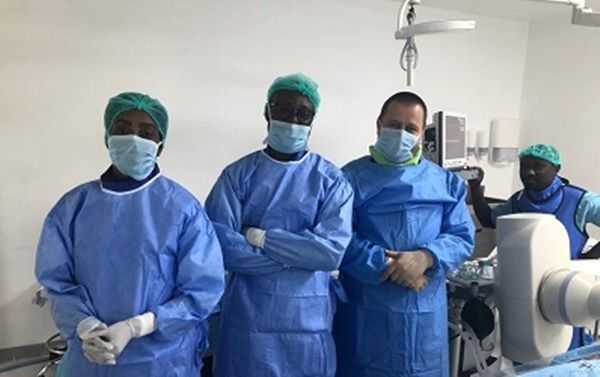
A seven-member team of doctors led by Dr Benjamin Dabo Sarkodie performed the first-ever brain surgery in Ghana without cutting the skull in 2019.
Minimally invasive brain surgery is the technique to safely remove brain and skull-based tumours through smaller and more precise openings that minimise collateral damage, such as injury or other damage inflicted on an unintended target, such as blood vessels and nerves.
Technically known as ‘Endovascular brain aneurysm coiling’, the technique passes a tube (catheter) through the groin (junctional area between the abdomen and the thigh on either side of the pubic bone) up into the artery containing the brain aneurysm, a process known as endovascular coiling or coil embolisation.
The two-hour surgery was performed with modern equipment and computer software at the Euracare Advanced Diagnostic and Heart Centre, a private health facility in Accra.
- Korle-Bu Hospital’s historic cancer surgery
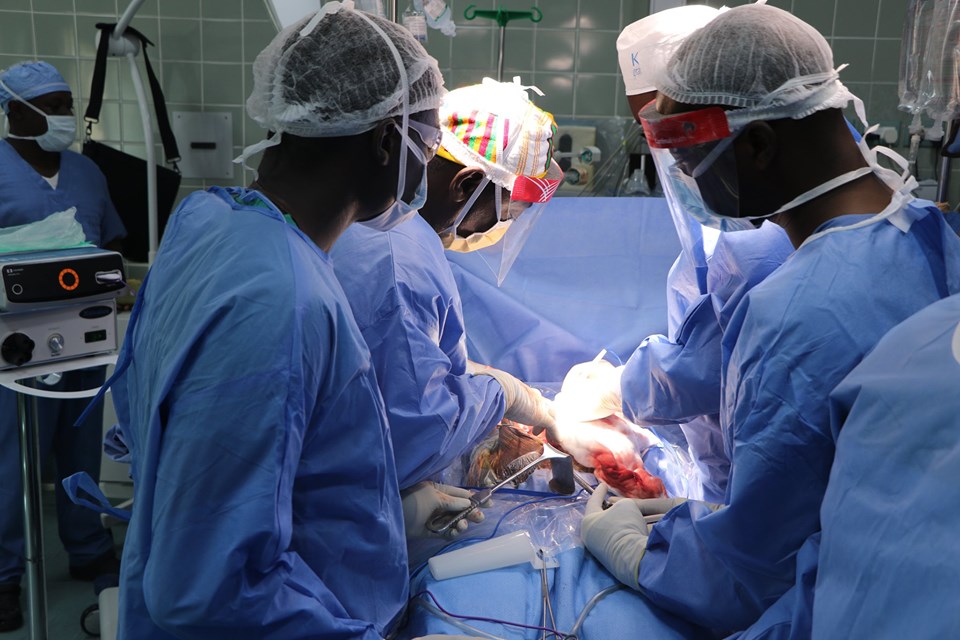
Ghana’s foremost teaching hospital, the Korle-Bu teaching hospital made history in 2019 after completing a 10-hour-long surgery to remove a Pseudomyxoma Peritonei tumour.
This was the first time in Ghana and West Africa that such a rare tumour had been removed through Intraperitoneal Hyperthermic Chemoperfusion (HIPEC).
HIPEC is a type of hyperthermia therapy used in combination with surgery to treat advanced abdominal cancers.
The team of doctors, anaesthetists and nurses led by Dr Asare Offei were on their feet throughout the joint procedures known as Cytoreductive surgery and HIPEC.
- Separation of Conjoined Twins on the Head, at the Greater Accra Regional Hospital
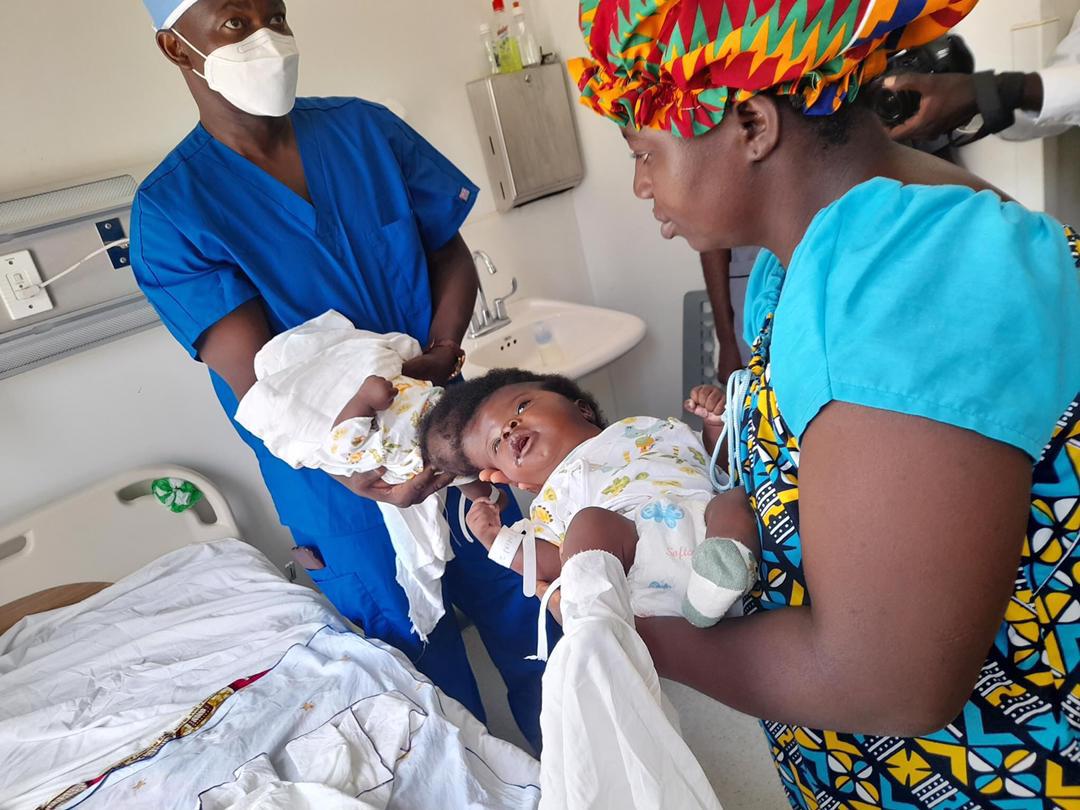
The Greater Accra Regional Hospital (RIDGE) successfully conducted its first-ever surgery for the separation of
conjoined twins.
Even though this was not the first surgery to separate conjoined twins in the country, this was the first procedure to separate babies joined on the head (craniopagus) in Ghana.
The surgery, classified as one of the most complex types, was successful after two years of preparations and financial support from the government and other well-meaning organisations and individuals.
Sadly the medical team, led by Professor Samuel Kaba, announced that they lost one of the babies due to cardiac arrest after commencing the separation process with nine major surgeries.
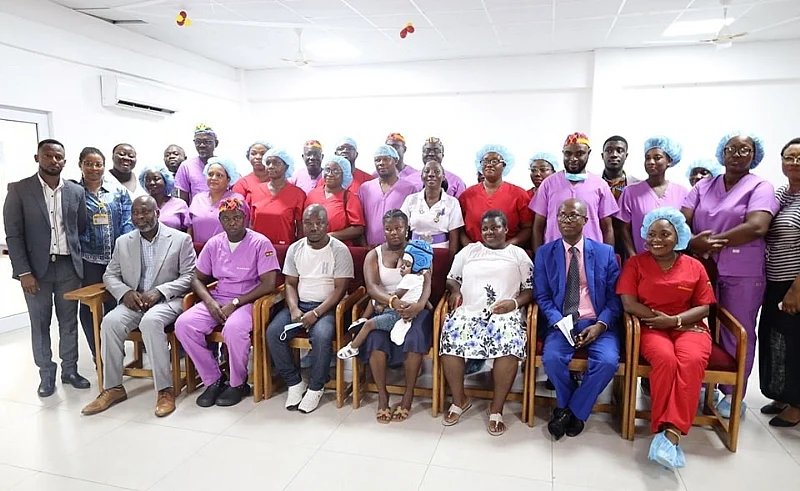
Meanwhile, five months after separation, Elisha, the surviving twin, now 26 months old, is stable and improving while he waits for further surgeries.
- Complex congenital limb malformation repair at Komfo Anokye Teaching Hospital (KATH)
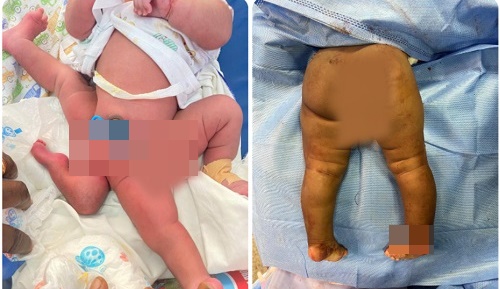
Dr Dominic Konadu-Yeboah, Senior Specialist in Trauma and Orthopaedics, led a team of surgeons, anesthesiologists, paediatricians, and nurses, to accomplish a remarkable six-hour operation at Komfo Anokye Teaching Hospital (KATH) to repair a complex congenital limb malformation in a five-month-old baby on February 20, 2023.
The baby suffered a rare 6 per 10,000 live births condition known as polymelia, an abnormality where supernumerary(excess) limbs are attached to a segment of the body.
In addition to polymelia, the baby had other associated conditions, including abnormal kidney positioning, anorectal malformation, genital fistula, and visual impairment.
It took the specialists five months of meticulous preparations and pre-operative investigations involving Computer Tomography (CT), Magnetic Resonance Imaging (MRI), echo, and ultrasound scans to detect any other associated abnormalities.
- First Cardiac Catheterisation surgery on three children at the University of Ghana Medical Centre
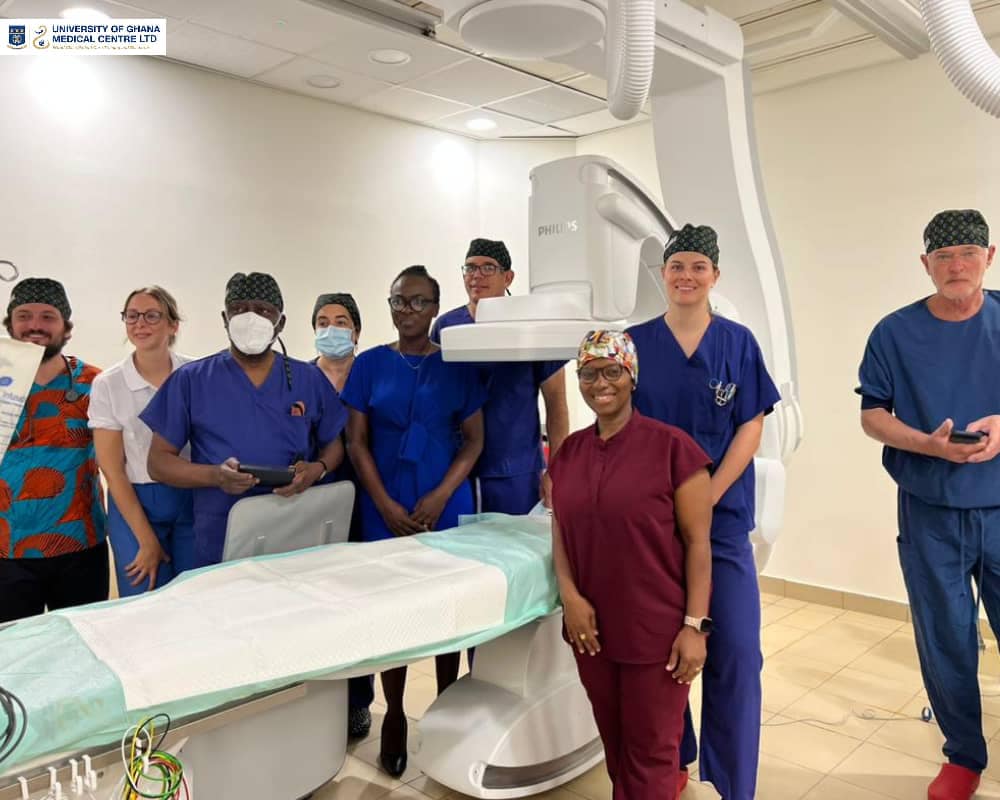
The University of Ghana Medical Centre Ltd ( UGMC), in collaboration with Global Heart Care (A German-based philanthropic agency ), performed a minimally invasive cardiac intervention in children known as Pulmonary Valvuloplasty for the first time on May 15 and May 16, 2023.
The surgeries were performed on three Ghanaian children diagnosed with severe congenital heart valve defects from birth, known as pulmonary stenosis.
Their conditions were repaired by minimally invasive venous access at the groin using the Philip Asurion 7 technology. This was the first time the Philip Asurion 7 technology has been used in Ghana.
According to the doctors, the greatest benefit of this procedure is that the heart was not opened, and the patients had a short hospital stay.
The three paediatric patients were discharged 1-2 days after the procedure as opposed to the 7- 10 days required for open-heart surgeries.
The UGMC team consisted of Prof Nana-Akyaa Yao, the Clinical Lead for Paediatric Cardiac Services at the UGMC, and staff from the Centre’s paediatric surgical and Cath Lab units.


